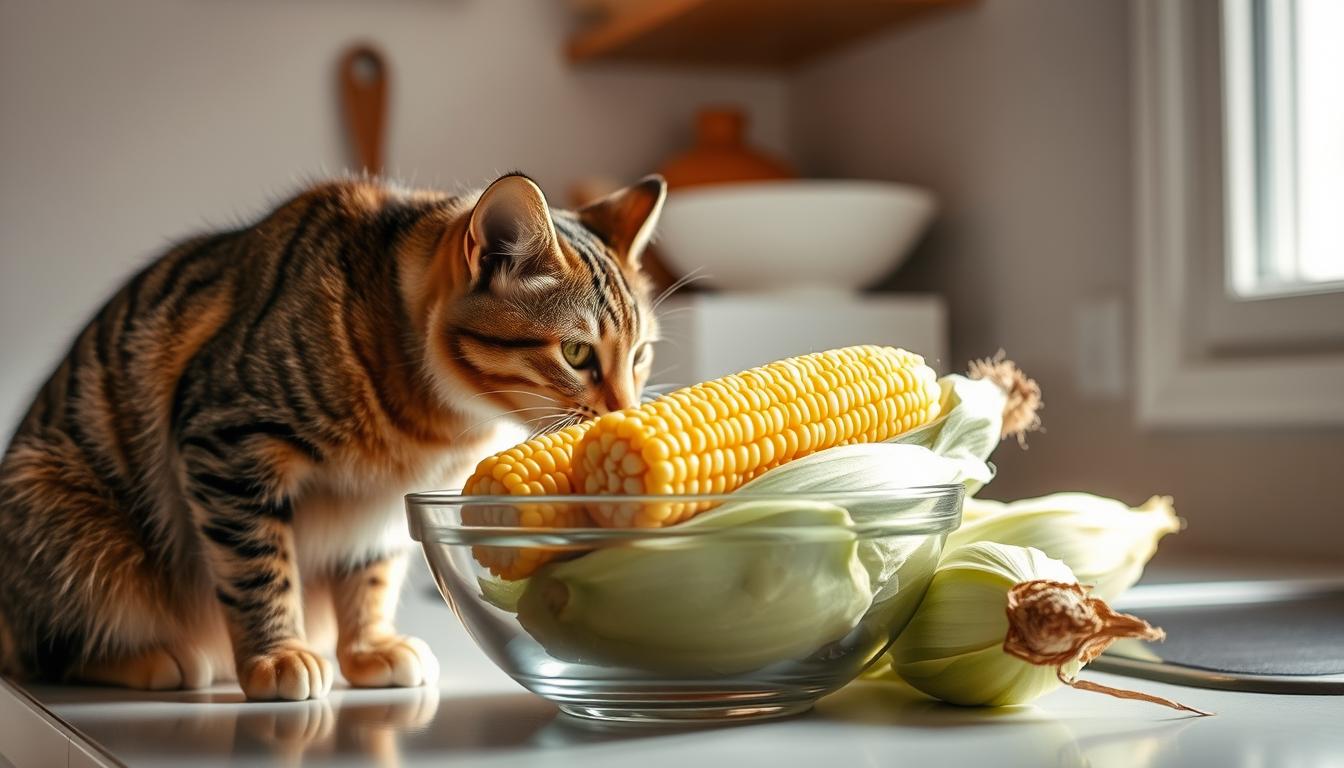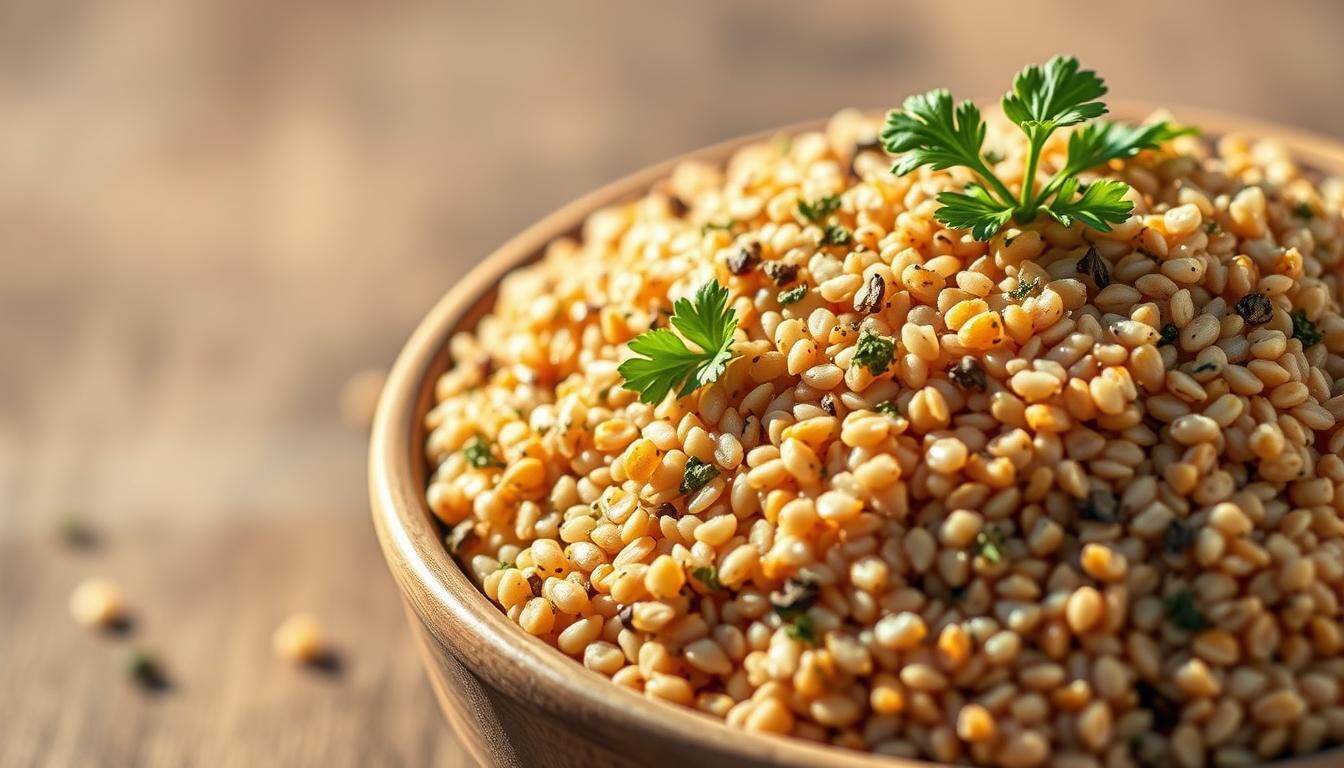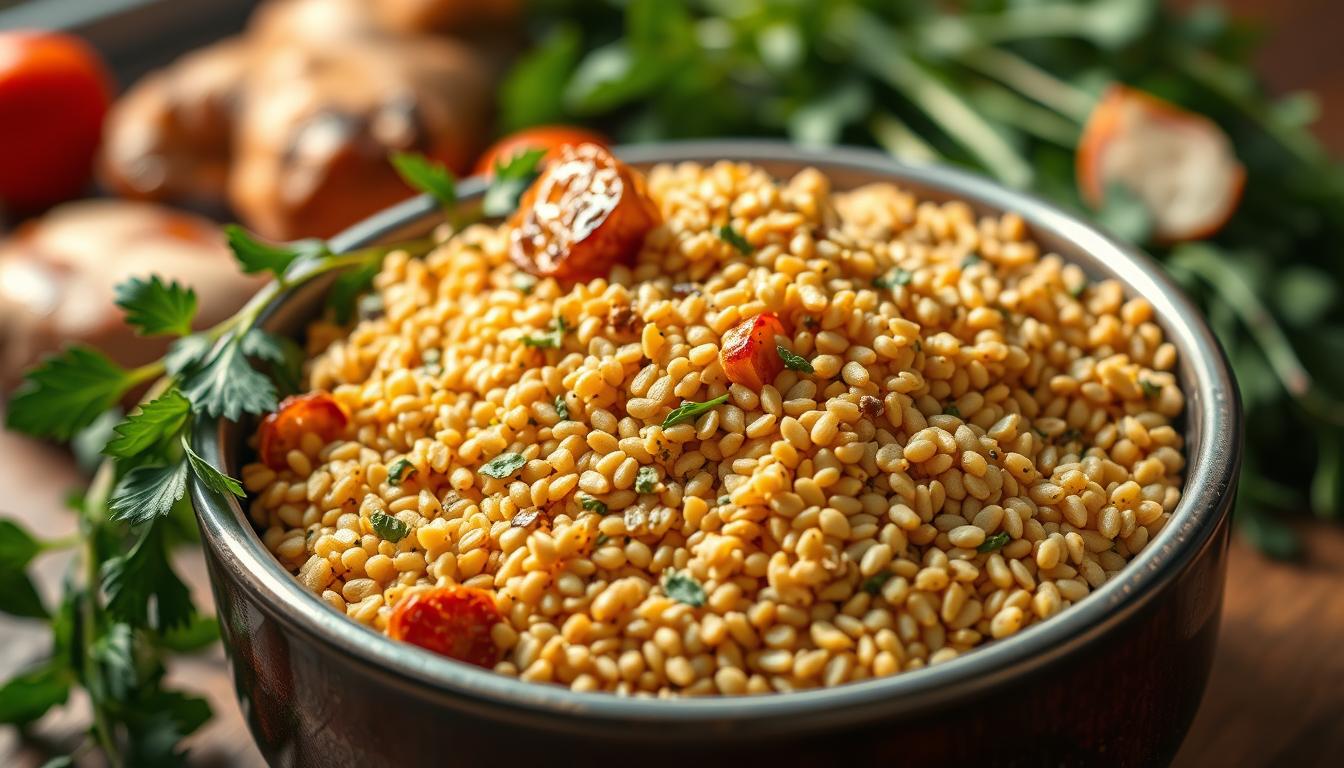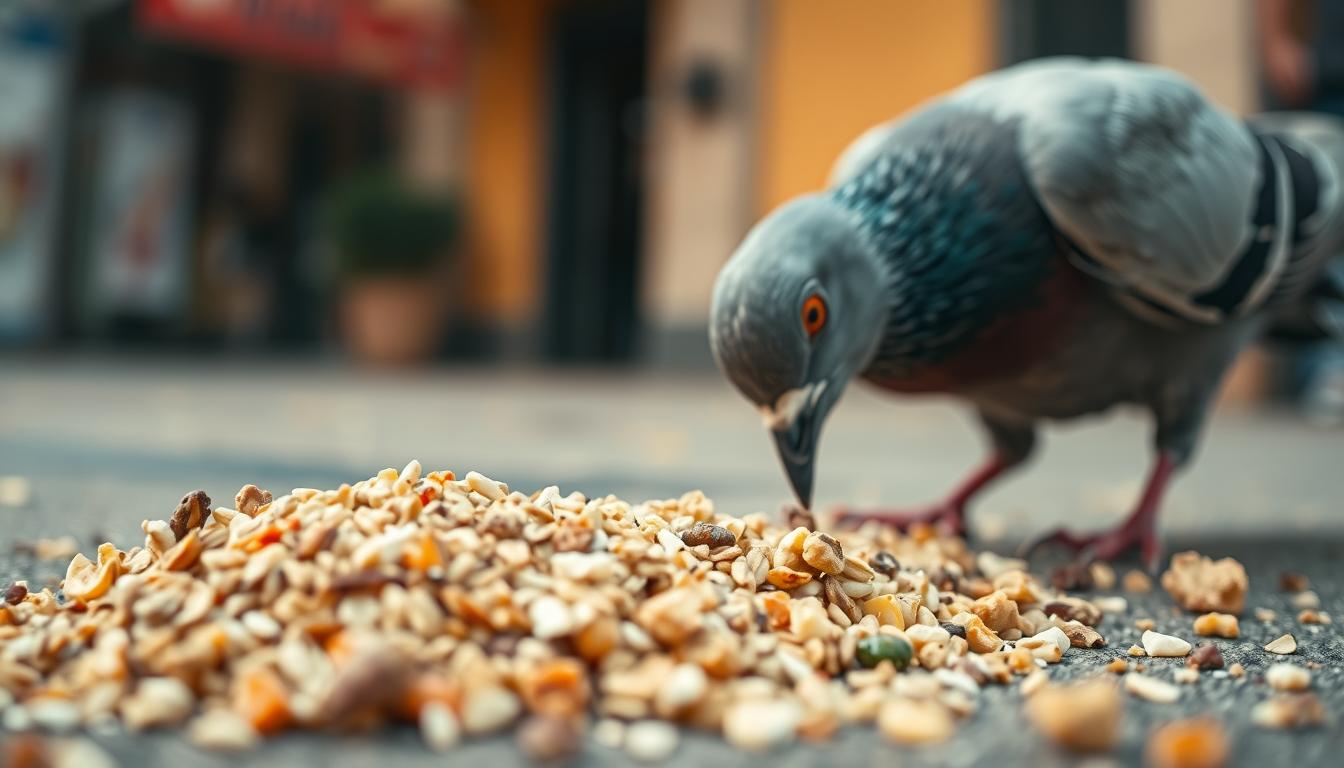Are you unknowingly feeding your cat a potentially harmful ingredient? Corn has become a controversial topic in pet nutrition. Many cat owners question its safety and nutritional value.
Is corn safe for cats? The answer isn’t as straightforward as you might think. Up to 92% of corn in the U.S. is genetically engineered. This raises significant concerns about its impact on your feline friend’s health1. A 2009 scientific study revealed alarming health risks associated with genetically modified corn. It found that rats developed organ diseases after just 90 days of consumption1.
The prevalence of corn in pet food is staggering. In 2020, Iowa alone produced over 2.2 billion corn bushels. This represents about 16.19% of total U.S. corn production1. This widespread use makes understanding corn’s role in your cat’s diet crucial.
Pet owners are becoming increasingly aware of what goes into their cats’ food. A 2017 survey showed that 65% of pet owners now prefer non-GMO ingredients1. And 83% carefully read pet food labels1. These statistics highlight a growing concern about corn and its potential health implications.
As we dive deeper into this topic, you’ll discover nine game-changing insights. These insights will transform your understanding of corn in cat nutrition. From potential risks to surprising benefits, this guide will empower you to make informed decisions about your cat’s diet.
Table of Contents
Understanding Cat Nutrition
Cats are special animals with their own diet needs. They must eat a lot of protein and certain nutrients to stay healthy2.
It’s important to know what your cat needs when it comes to food. Many people ask about carbs and grains in cat food.
The Basics of a Cat’s Diet
A good cat diet should have lots of high-quality protein. Some cat foods have corn, but not all are good. The best cat food without corn has:
- High-protein content
- Essential amino acids
- Balanced nutritional profile
Essential Nutrients for Cats
Cats need certain nutrients for their special metabolism. Over 50% of cats in the U.S. are overweight or obese2. This makes choosing the right food very important. Key nutrients include:
- Protein: Main energy source
- Taurine: Important for heart and eye health
- Fatty acids: Helps skin and coat
Role of Carbohydrates in Feline Diets
Cats metabolize nutrients differently from humans and other animals.
Corn is a good carb, but cats should only have a little2. Grain and gluten allergies in cats are very rare3. Your cat’s diet should focus on animal proteins, not too many carbs.
When picking cat food, choose options that are well-balanced and meet your cat’s needs. Talking to a vet can help you make the best food choices for your cat3.
Is Corn Safe for Cats?
When thinking about corn for cats, it’s important to know their special needs. Cats are different from other animals because they need animal proteins more than plants4. They can’t easily digest plant foods5.
Nutritional Value of Corn
Corn might seem safe, but it’s not good for cats. It doesn’t have enough amino acids that cats need4. Eating corn can also lead to obesity in cats because it has a lot of empty calories4.
Potential Risks of Feeding Corn
Are All Types of Corn Safe?
Not all corn is safe for cats. Raw kernels can block their airways or cause choking4. Canned corn has additives that can harm cats4.
Remember: Moderation is crucial when introducing any new food to your cat’s diet.
Even though some pet foods have corn, it’s not always good. Cats need mostly protein in their diet6. The risks of corn for cats are serious and should be considered carefully.
Always talk to your vet before changing your cat’s food5.
Benefits of Corn in Cat Food
Understanding corn’s role in cat food can guide your choices for your cat’s diet. Corn is a topic of debate, but it has some benefits in cat food.
Corn as a Nutritional Ingredient
Corn in cat food does more than just fill space. It’s safe for cats to eat small amounts, offering some nutritional perks7. Some cat foods use corn to boost their nutritional value.
Fiber Content and Digestive Health
Corn adds fiber to your cat’s diet, which is good for their digestive health4. This fiber helps with regular bowel movements. The main benefits are:
- Supports digestive system functioning
- Provides additional nutrients
- Helps maintain healthy weight
Corn Protein: Understanding Its Role
Corn protein is not as complete as animal protein but can still help. Cats need meat-based proteins, not just corn4. Vets say corn should be used as a supplement, not the main protein.
Remember, moderation is key when introducing corn in cat food.
Before adding corn to your cat’s diet, talk to your vet. They can make sure it fits your cat’s nutritional needs4.
Common Misconceptions About Corn
Many pet owners are confused about corn in cat food. They get mixed messages online and in ads. This confusion can make it hard to know what’s best for their pets.
- Corn is just a worthless filler in cat food
- All corn-inclusive cat foods are nutritionally poor
- Cats cannot digest corn at all
Debunking the Filler Myth
The idea that corn is only a cheap filler is not true. Corn has important nutrients like protein, fiber, and antioxidants. These can help keep your cat healthy8.
Even though cats need meat proteins, corn can still be part of their diet. It’s not just about meat; it’s about balance.
“Not all ingredients are created equal in pet nutrition” – Veterinary Nutrition Expert
The Truth About Corn-Free Cat Food
More and more pet owners are choosing corn-free cat food. About 25% of them do this because of myths9. But, cutting out corn doesn’t always mean the food is better.
When picking cat food, look at the big picture. Don’t just focus on one ingredient. Your vet can help find the right food for your cat8.
How Cats Process Corn
To understand how cats digest corn, we must look into their digestive system. Cats are meat-eaters with a metabolism that focuses on animal proteins. Corn, found in many cat foods, is a topic of debate for its value to cats.
Feline Digestive Efficiency
Cats’ digestive systems are different from those of omnivores. Their nutritional needs make processing corn hard. Here are some key points about corn and cats:
- Cats don’t digest carbs well10
- Corn doesn’t offer much nutritional value for cats10
- Small amounts of cooked corn are okay in moderation10
Corn Sensitivity in Cats
Not all cats react the same way to corn. Some may have digestive problems from corn-based foods. Here are some concerns:
While corn is not toxic to cats, it should not be their main food source.
It’s important to know your cat’s dietary needs. A vet can help decide if corn-based products are right for your cat.
Signs Your Cat May Be Allergic to Corn
Figuring out if your cat has a corn allergy can be tough. Food sensitivities show up in many ways, making it hard to spot. Cats with corn sensitivity might feel a little uncomfortable or have serious symptoms11.
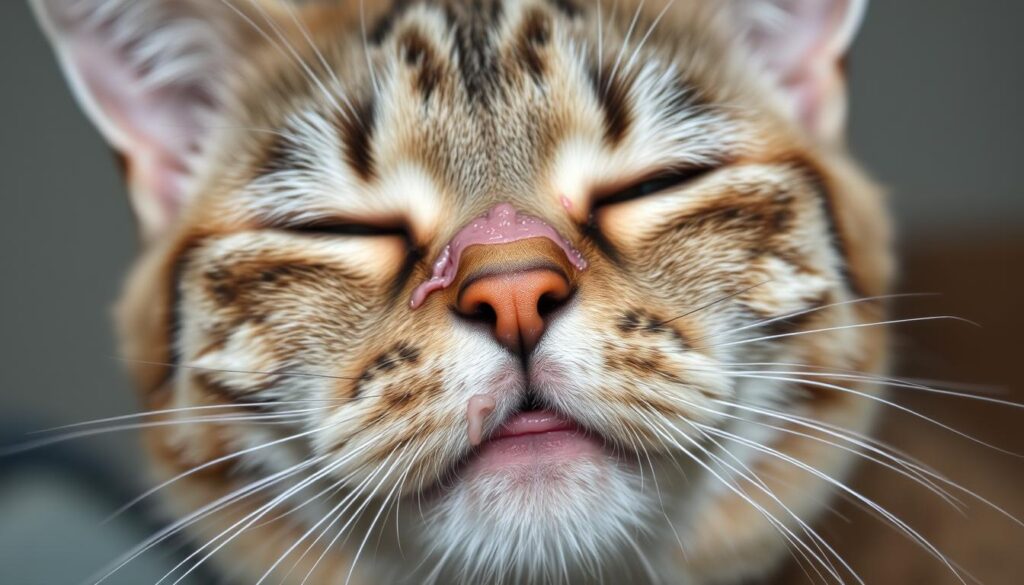
- Persistent skin irritations
- Excessive scratching
- Gastrointestinal disturbances
- Unusual changes in behavior
Common Symptoms of Food Allergies
Cats with corn allergies often show certain signs. Chronic itching is a big one, hitting spots like the face, ears, belly, and paws12. They might also have:
- Recurring skin inflammation
- Digestive issues
- Respiratory complications
Differentiating Corn Allergies from Other Conditions
Not every symptom means your cat has a corn allergy. Purebred cats might be more likely to have food allergies11. Getting a vet’s opinion is key for a correct diagnosis. The best way to find out is through elimination diets12.
Remember: Each cat is unique, and symptoms can vary widely.
Getting help from a vet is important to tell corn allergies apart from other health issues. Food trials last about eight weeks to find out what’s causing the allergy12.
Veterinary Insights on Corn for Cats
Understanding feline nutrition is complex. Veterinarians offer insights on corn in cat diets that pet owners need to know.
Cats are meat-eaters, needing mostly animal protein13. Veterinarians share their views on corn in cat food.
What Veterinarians Recommend About Corn
Veterinarians have a few key points about corn in cat food:
- Corn can be given in small amounts without harm13
- Too much corn can cause stomach problems13
- Some cats might have corn allergies13
Recommendations for Feeding Your Cat
When thinking about corn for cats, vets give important advice:
- Go for cat food without corn if your cat is sensitive
- Watch how your cat reacts to corn foods
- Talk to your vet about your cat’s diet
“Always prioritize protein-rich, balanced nutrition for your feline companion.”
Cats can’t digest carbs well, which might harm their health14. Even though corn is in some cat foods, it shouldn’t be the main ingredient.
Every cat is different. Your vet can give advice on the best food for your cat’s health.
Alternatives to Corn in Cat Diets
Finding the best corn free cat food can be tough for pet owners. They want the best nutrition for their cats. Cats need special food that meets their unique needs.
Looking for cat food without corn? You’ll find many healthy options. Cats need lots of protein because they are meat-eaters15.
Protein Alternatives for Cats
- Chicken meat
- Turkey
- Fish (salmon, tuna)
- Lamb
- Beef
These proteins help your cat’s muscles grow strong. Quality is more important than how much you give15.
Grain-Free Options to Consider
Want to skip corn? Try other grains and foods that are good for your cat:
- Rice
- Oats
- Quinoa
- Sweet potato
Remember, the goal is to provide a balanced diet that meets your cat’s nutritional needs while avoiding potentially harmful ingredients.
Watch out for aflatoxins in corn, which can harm cats16. Always talk to your vet about the best food for your cat.
When picking corn free cat food, choose high-quality proteins. Read labels carefully to make sure your cat gets the best nutrition15.
Homemade Cat Food: Should You Include Corn?
Making homemade cat food needs careful planning and knowledge of nutrition. Many pet owners want the best for their cats, but it’s not easy. Corn is a topic of debate in homemade cat diets, and knowing its role is key17.

Pros and Cons of Homemade Diets
Homemade diets have benefits for cats and their owners. You can pick the ingredients and avoid bad additives17. But, making sure the meals are balanced is hard without the right knowledge about cat nutrition.
- Control over ingredient selection
- Potential cost savings
- Freshness of ingredients
- Customization for specific health needs
Safely Incorporating Corn for Cats
When adding corn to homemade cat food, follow some important rules. Use organic corn to avoid genetic engineering and pesticides17. Cats need meat as their main food, not corn18.
Remember: Corn should be a minor component, not the main ingredient in your cat’s diet.
Getting the nutrition right is key. Many homemade cat recipes are missing important nutrients19. They often lack taurine, choline, and other vital nutrients19.
- Use organic corn
- Cook corn thoroughly
- Limit corn quantity
- Consult a veterinary nutritionist
While corn can be in homemade cat food, getting help from a vet is important. A board-certified veterinary nutritionist can help make a safe, balanced meal plan for your cat19.
Reading Cat Food Labels
Reading cat food labels can seem like solving a puzzle. It’s key to know what’s in your cat’s food to keep them healthy. This means finding the best cat food without corn or with little corn.
The ingredient list on cat food tells you a lot about nutrition. AAFCO rules say ingredients are listed by weight. So, the first items are the main ones20. Look closely at where corn is listed.
Decoding Ingredient Terminology
Cat food labels use special terms to show ingredient amounts:
- Foods with just one ingredient must have 95% of that ingredient20
- “Dinner” or similar terms mean 25-94.9% of that ingredient20
- “With” labels mean 3-24.9% of the ingredient20
- “Flavor” can be as little as 0-2.9% of the ingredient20
Understanding Nutritional Guarantees
Look for “complete and balanced” to know it meets cat nutritional needs20. High-quality proteins should be in the top three ingredients21.
“Know what you’re feeding your feline friend by understanding label details.”
When looking at corn in cat food, think about its amount and position. Some cats need special diets, so some owners choose cat food without corn.
Additional Label Insights
- Check the guaranteed analysis for protein, fat, and fiber percentages21
- Avoid artificial additives like BHA and BHT21
- Consider your cat’s age, activity level, and health conditions21
Always talk to your vet for advice on your cat’s diet20.
Leading Brands and Their Use of Corn
Pet owners often ask about major brands and corn in cat food. The pet food market has many choices for those looking for corn or corn-free options22.
- Purina Pro Plan: Often uses corn as a protein source
- Hill’s Science Diet: Offers both corn-inclusive and corn-free options
- Royal Canin: Uses corn in many of their specialized formulas
- Blue Buffalo: Provides grain-free alternatives for sensitive cats
Popular Brands Featuring Corn
Purina and Hill’s Science Diet use corn to keep costs down. Cats may react differently to corn23. Some cats do fine with corn, but others might have digestive issues22.
Comparing Formulas: With Corn vs. Without Corn
When looking at cat food with or without corn, consider these points:
- Nutritional content
- Digestibility
- Price point
- Individual cat’s dietary needs
Not all corn-based cat foods are created equal. Carefully examine ingredient lists and consult your veterinarian.
Some brands are moving to corn-free options because of consumer demand for more protein23. Always watch how your cat reacts to different foods22.
Final Thoughts: Is Corn Right for Your Cat?
When thinking about corn for cats, owners must look at their cat’s needs. A cat’s diet is key to their health. Cats need a lot of protein, making up 70% of their diet24.
Vets say each cat is different. Some cat foods have corn, but not all cats like it. Cats mainly use fat and amino acids for energy, not carbs24. Look for cat food high in protein for your cat’s best health.
Health risks from diet are real. With many cats overweight, the right food is crucial24. Always talk to a vet about your cat’s diet. They can say if corn is safe for your cat, based on their health and age.
Choosing the right food for your cat is important. Corn might not be bad, but it’s not always good for them. Watch for any bad reactions and change their diet if needed. Always listen to your vet and focus on what’s best for your cat.
FAQ
Is corn safe for cats to eat?
Corn is not toxic to cats, but it’s not the best food for them. Cats need a lot of protein, and corn doesn’t give them what they need. Some cats can eat corn, but it’s not the best choice for their health.
Why do so many cat foods contain corn?
Corn is cheap and adds carbs to cat food. It’s used to make food cheaper and to add some fiber. But, many experts say cats can’t digest corn well.
Can cats be allergic to corn?
Yes, cats can be allergic to corn. Signs include skin problems, digestive issues, and ear infections. If you think your cat is allergic, talk to your vet and try a special diet.
How can I tell if corn is causing problems for my cat?
Look for signs like scratching, skin issues, and digestive problems. These could mean your cat is sensitive to corn. Keep a food diary and talk to your vet to find the right food for your cat.
Are there benefits to corn in cat food?
Corn has some benefits like fiber and is cheap. But, it’s not as good for cats as animal proteins. Most vets say to choose foods with better proteins.
What are good alternatives to corn in cat food?
Good alternatives are chicken, turkey, fish, and lamb. For grain-free options, try sweet potato, peas, or less grain. Always choose foods with more animal proteins and ask your vet for advice.
How do I choose a cat food without corn?
Look for foods where animal protein is first. Choose brands with high-quality proteins and less grain. Talk to your vet about the best corn-free food for your cat.
Can I make homemade cat food without corn?
Yes, you can make homemade cat food without corn. But, you need to work with a vet nutritionist to make sure it’s balanced. Focus on animal proteins and add supplements as needed.
Are all cats sensitive to corn?
Not all cats are sensitive to corn. Some can eat it without problems, while others react badly. It’s important to watch how your cat reacts and talk to your vet about their diet.
Source Links
- Why Is Corn Not Recommended for Pets? – https://www.barkandwhiskers.com/2022-04-22-why-you-shouldnt-feed-pet-food-containing-corn-to-your-pets/
- Can Cats Eat Corn? | Great Pet Care – https://www.greatpetcare.com/cat-nutrition/can-cats-eat-corn/
- What’s in My Cat’s Food?: Designer Diets, Grain Free Diets | VCA | VCA Animal Hospitals – https://vcahospitals.com/know-your-pet/whats-in-my-cats-food-designer-diets-grain-free-diets
- Can Cats Eat Corn? Vet-Approved Nutritional Facts & FAQ – Catster – https://www.catster.com/nutrition/can-cats-eat-corn/
- Corn Is Not Toxic To Cats – https://greg.app/corn-toxic-to-cats/
- Can Your Cat Snack on Popcorn? – https://www.dailypaws.com/cats-kittens/cat-nutrition/what-can-cats-eat/can-cats-eat-popcorn
- Can Cats Eat Corn? Vet Reviewed Nutrition Facts | PangoVet – https://pangovet.com/pet-nutrition/cats/can-cats-eat-corn/
- Food Fallacies: Debunking Common Pet Nutrition Myths – Palisades Veterinary Hospital – https://palisadesvet.com/food-fallacies-debunking-common-pet-nutrition-myths/
- Pet Food Fables: Unraveling Myths about Dog and Cat Nutrition – Animal Clinic of CB – https://animalclinicofcb.com/pet-food-fables-unraveling-myths-about-dog-and-cat-nutrition/
- Can Cats Have Popcorn? – https://petcube.com/blog/can-cats-eat-popcorn/
- Cat Allergies: Types and Symptoms – https://www.petmd.com/cat/conditions/systemic/allergies-cats
- Food Allergies in Cats: Does My Cat Have Food Allergies? – https://www.medvet.com/food-allergy-cat/
- Can Cats Eat Corn on the Cob? – https://vocal.media/petlife/can-cats-eat-corn-on-the-cob
- Can Cats Eat Tortillas? Exploring The Safety And Risks | Cat Boarding Hotel Laguna, Mission Viejo, Anaheim, Santa Ana, CA | Cats Luv Us – https://www.catsluvus.com/cat-grooming/can-cats-eat-tortillas-exploring-the-safety-and-risks/?srsltid=AfmBOooTBRT4IaHihp_NCH0CrjbAxLliFyS2Rt8aEQWwvQrWtzS7MJv8
- 4 Things to Avoid Feeding Your Cat | PrettyLitter – https://www.prettylitter.com/blog/4-things-to-avoid-feeding-your-cat?srsltid=AfmBOorWW0t61TW49icThgb0cZiRp95RnjSR9BT2h3xODR931HSWOyFs
- Cornstarch Conundrum: Is It Safe For Cats? | Cat Boarding Hotel Laguna, Mission Viejo, Anaheim, Santa Ana, CA | Cats Luv Us – https://www.catsluvus.com/cat-food/cornstarch-conundrum-is-it-safe-for-cats/?srsltid=AfmBOorDf-hRUM7uJ8njCJGG5ucUMVyaWrHtpTU2v8jbm6qu50FzcyYs
- Homemade Diets for Cats and Dogs | Little Big Cat – Dr. Jean Hofve – https://littlebigcat.com/easy-homemade-diets-for-cats-and-dogs/
- People Foods Cats Can Eat – https://www.webmd.com/pets/cats/ss/slideshow-people-foods-cats-can-eat
- What You Need to Know About Homemade Cat Food – https://www.thesprucepets.com/homemade-cat-food-recipes-551946
- How to Read Cat Food Labels: Vet Approved Advice – Catster – https://www.catster.com/lifestyle/how-to-read-cat-food-labels/
- Food for Thought: Decoding Cat Food Label – Just Cats Clinic – https://justcatsclinic.com/food-for-thought-decoding-cat-food-label/
- Can Cats Eat Corn? Here Are Our Kernels of Wisdom – https://www.thesprucepets.com/can-cats-eat-corn-find-out-8678427
- 10 Best Cat Foods in 2025, Recommended By Vets – https://www.petmd.com/cat/vet-verified/best-cat-food
- Can Cats Eat Cornbread? Vet Reviewed Facts & FAQ | PangoVet – https://pangovet.com/pet-nutrition/cats/can-cats-eat-cornbread/

